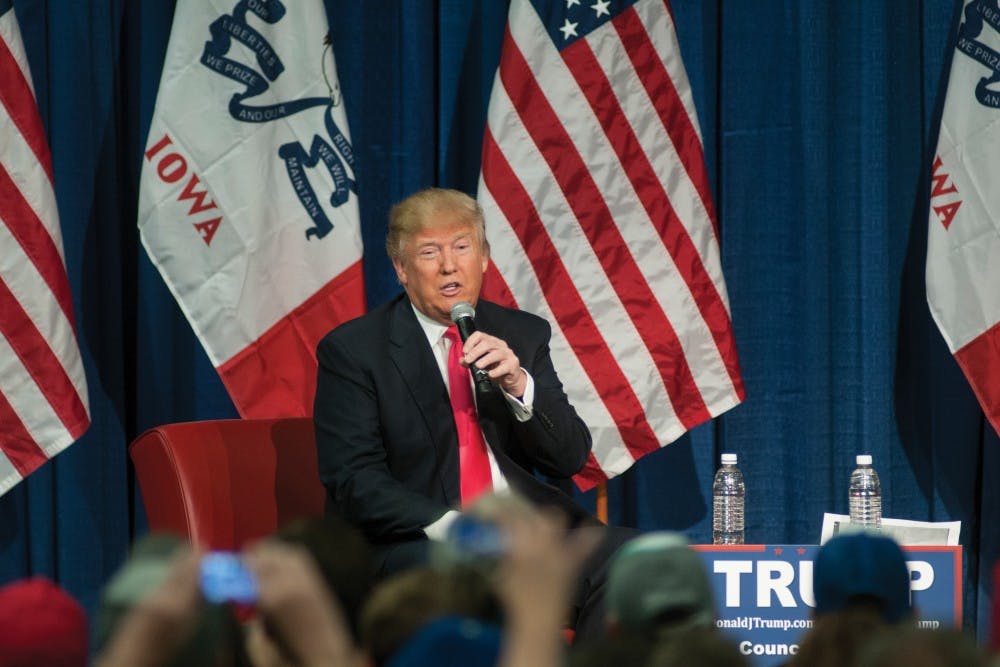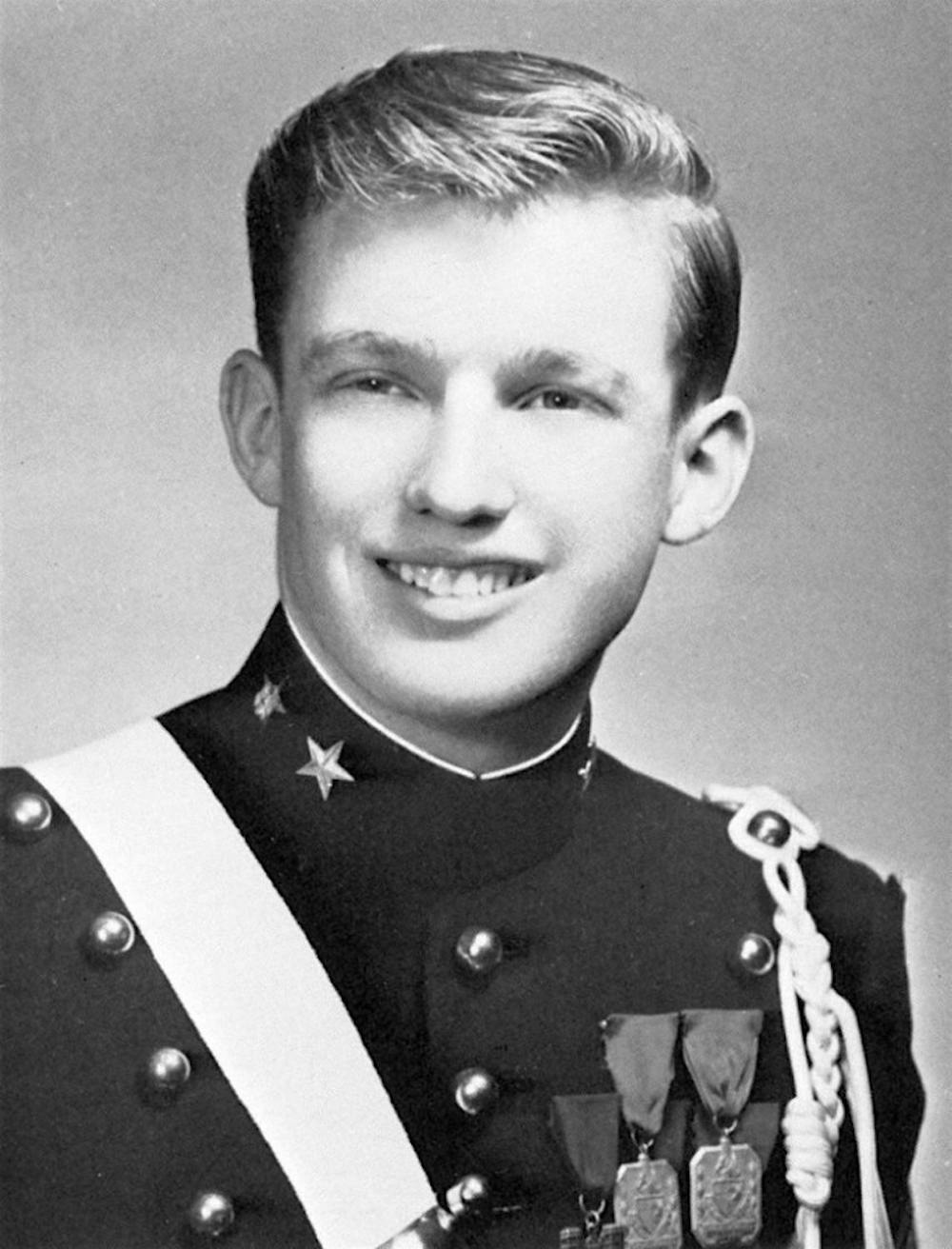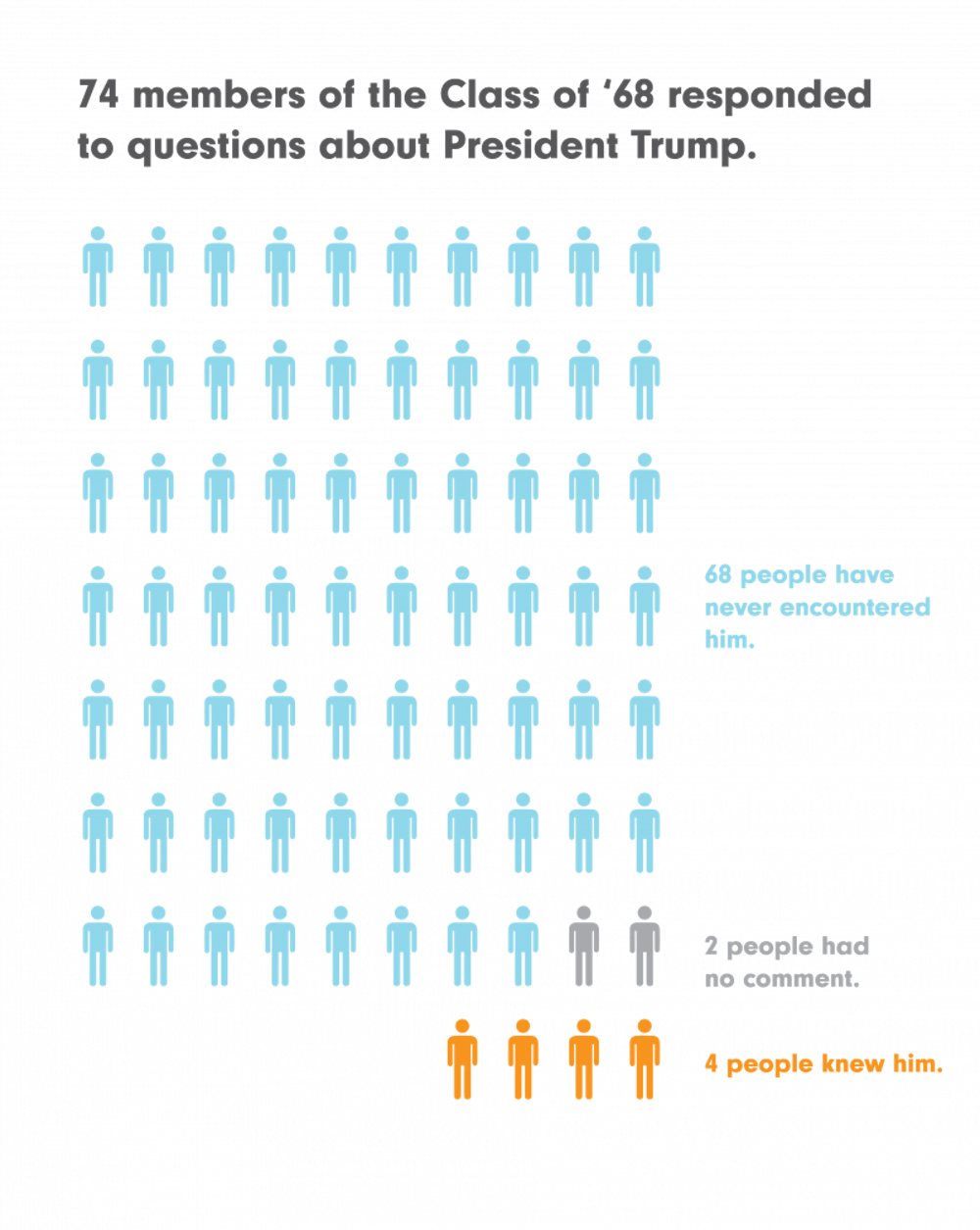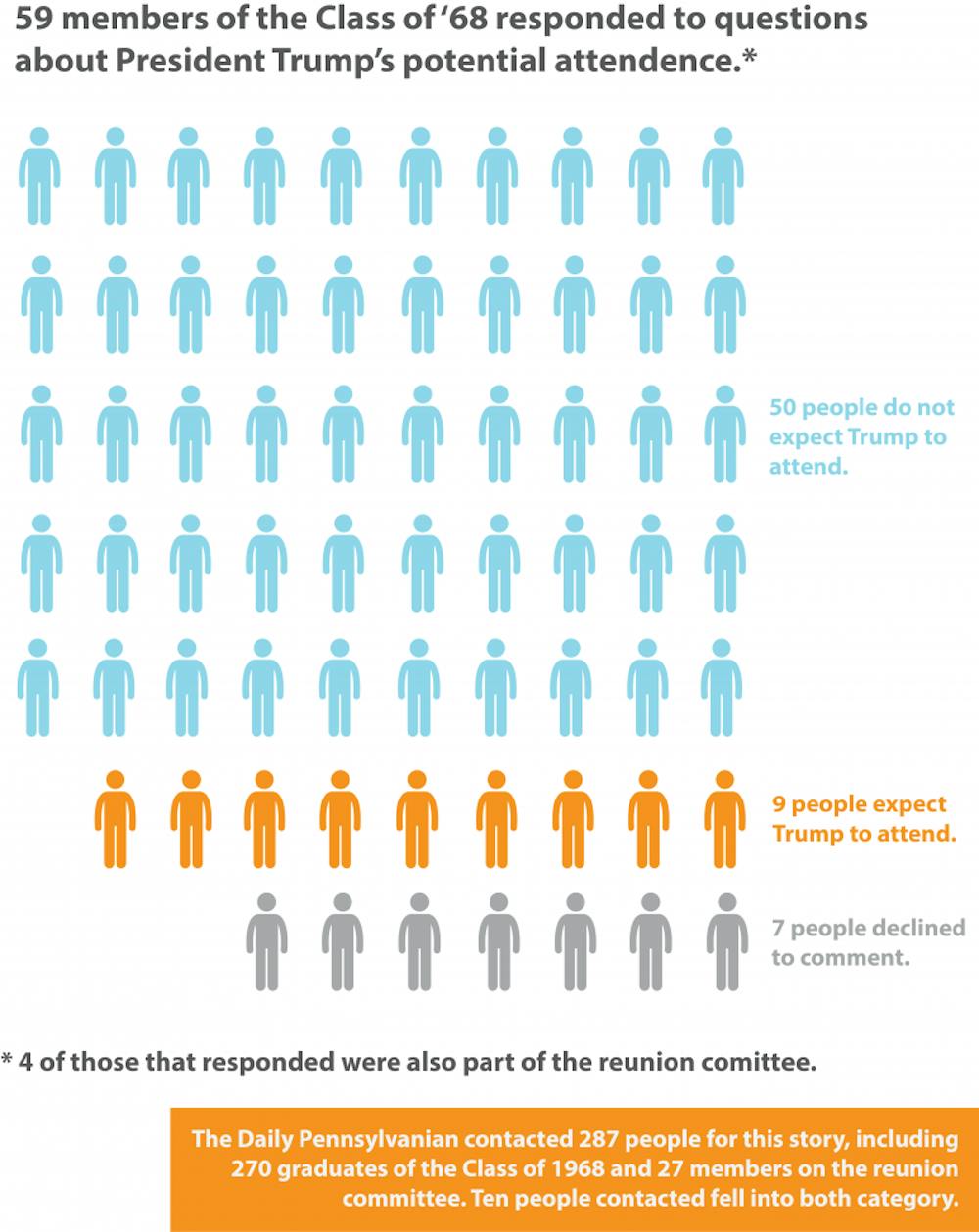
This May will mark 50 years since President Donald Trump graduated from the University of Pennsylvania — a credential he rarely fails to mention. However, as fellow alumni book airplanes and hotels in preparation for the 50th year reunion, it's unclear if their most famous classmate will join them back on campus.

Recent presidents have a proud tradition of attending and hosting their school reunions while in office. In 1982, Ronald Reagan delivered the commencement speech at his alma mater, Eureka College, to commemorate his 50th reunion. In 1994, Bill Clinton attended his high school’s 30th reunion celebration in Arkansas. And in 2003, George W. Bush invited his fellow members of the Yale Class of 1968 to celebrate their 35th reunion at the White House South Lawn.
But the plans of President Donald Trump, who celebrates his Penn 50th reunion in May, are still unknown. Trump, who graduated from Wharton in 1968, was invited to the 50th reunion alongside all other members of his graduating class in early February, according to Class of 1968 Vice President and 50th Reunion Liaison Elsie Sterling Howard.
Howard said the organizing committee has not heard back from Trump and “have no idea” whether he is planning to attend.
For this story, The Daily Pennsylvanian contacted 287 people who were either graduates of the Class of 1968 or members of the reunion committee. Of the 59 people who responded, 50 people, or 85 percent, said they expected Trump not to attend the reunion. Nine people said they expected Trump to attend.
Many of Trump's classmates say they do not expect him to follow in the footsteps of other United States presidents and attend the reunion, but others maintain the University should capitalize on this unique opportunity to bring him back to Penn's campus.
This split in opinion is not new to discussions surrounding Trump and his complex relationship with the University.
While Trump is fond of citing his Penn credentials in speeches and public appearances, President Amy Gutmann and the rest of the University's administration have never explicitly referred to Trump during his campaign or during his time in office. Gutmann came close to breaking her reticence only once in January 2017, when she described Trump's executive order banning immigration from seven Muslim-majority countries “injurious to our work and inimical to our values.”
During their 50th reunion last year, members of the class of 1967 called upon Penn to “denounce Trump.” 1968 College graduate Donald Morrison said he wouldn’t be surprised if similar actions were taken by the Class of 1968.
“Having stayed in touch with a couple of my classmates, yeah, they’re probably still up for a good protest,” Morrison said, adding he has not yet heard of any such plans.
Morrison, who is a former executive editor of The Daily Pennsylvanian, said that during his time at Penn, Trump was neither very social nor exceptionally interested in retaining friendships.
“He had a life and it wasn’t in West Philadelphia, and I just assume that’s true today, so I’d be very surprised if he showed up,” Morrison said.
This rings true of what many of Trump's former classmates have reported to remember about Trump's time at Penn. The DP contacted 269 people from the Class of 1968 for a story in 2017, and 68 of the 74 who responded said they had never encountered Trump at Penn.

1968 Wharton graduate Kenneth Kadish told the DP at the time that he knew everyone in his class except for Trump, adding that “it wasn’t that [Trump] was just not prominent. It was like he was non-existent.”
Should the president decide to attend the reunion, Morrison said he is likely to be faced with mixed reactions.
“He would be treated with the same respect we showed toward each other 50 years ago and the same contempt that members of the class must feel for him now,” Morrison said.
Showcasing the differing views on Trump's potential presence, fellow classmate Clifford Alsberg said he hoped the president is welcome to attend the reunion.
“Whether you love the guy or hate the guy, he is still the President of the United States, and the University of Pennsylvania is never going to have an opportunity like this again, ever, ever, ever," Alsberg said.
Alsberg has reached out to University administration via letters over the past year to bring this “opportunity of a lifetime” to honor a standing US president, but has received no response. He said he would be hesitant to attend the reunion if Penn does not consider honoring the President.

Other alumni, such as Bradford Block, said they did not think Trump should be denied the chance to attend his reunion, but added that a celebration of Trump would make him uncomfortable.
"Just as I don’t think they should protest him, based on his current policies and investigations going on, it’s not the time to honor him," Block said.
Regardless of Trump's attendance, reunions will be celebrated during alumni week in the days leading up to commencement, with Penn alumni from many classes attending the festivities.
Those taking part in the Class of 1968's 50th reunion will be invited to engage in Penn-themed activities like movie screenings, breakfasts, the dedication of the Class of 1968 Legacy Garden, and a Gala at the Barnes Foundation. The events begin on May 10 and conclude on May 14 with the Class of 1968 leading the Commencement parade.
This article is part of a series of investigative stories published by The Daily Pennsylvanian on Trump's time at Penn. Other articles include a review of his academic record as an undergraduate student at Penn and an in-depth dive into Wharton's effort to court Trump's fortune over the years.
The Daily Pennsylvanian is an independent, student-run newspaper. Please consider making a donation to support the coverage that shapes the University. Your generosity ensures a future of strong journalism at Penn.
Donate



